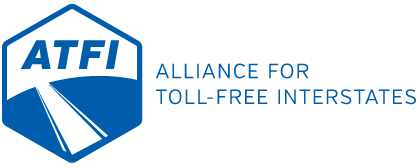The anti-tax group that attempted to stop Cincinnati's streetcar project has joined another big transportation fight – rejecting tolls from being used to pay for a new Brent Spence Bridge.
COAST is now part of Northern Kentucky United, the recently formed coalition of business, political and civic leaders fighting to keep tolls from helping to pay for the $2.6 billion bridge replacement and corridor overhaul, Northern Kentucky United officials said Monday.
COAST and new coalition member Teamsters Local 100 are the first influential groups from Ohio to publicly oppose proposed tolls on the Kentucky-owned bridge. COAST officials could not be reached for comment Monday.
Two other organizations also have joined Northern Kentucky United's "No BS Tolls" campaign, including a national truck drivers association – the Owner Operator Independent Drivers Association and Northern Kentucky Labor Council.
"Let's look at this whole thing again – there's a better way to do this," said Tim Donoghue, president of the labor council. "A toll is a tax on every working person who crosses that bridge."
If there is a way to build the bridge without tolls, those pushing to fast-track construction say they're open to hearing it. Northern Kentucky United, which launched early this month, has not presented another way to pay for the bridge project.
Meanwhile, the Brent Spence Bridge project has been stuck in the planning phase for 13 years because of the lack of federal funding. Ohio Gov. John Kasich, Kentucky Gov. Steve Beshear and top business executives on both sides of the Ohio River continue to say tolls are the only way to guarantee building a new bridge. With a lack of help from Washington, other states are using or considering tolls to pay for crumbling infrastructure.
The 51-year-old Brent Spence Bridge – part of the nation's busiest freight corridor, Interstate 75 – is classified as "functionally obsolete" because of its lack of emergency shoulders, limited visibility on the lower deck and narrow lanes. Its physical condition is worsening, according to an Enquirer analysis of inspection reports. Accidents in August and September have renewed questions about whether the Brent Spence Bridge is safe.
A poll commissioned in December 2013 by the big-business-backed Build Our New Bridge Coalition shows a majority of the public believes the Brent Spence Bridge is unsafe and inefficient while support is strong for a reasonable toll as part of the bridge funding package, according to coalition officials.
Roughly 80 percent of respondents supported building a new bridge, according to the survey by Harper Polling, a Pennsylvania-based firm used by many Republican candidates. The poll also found that 67 percent rate the bridge as either "mediocre" or "poor."
Tolls are acceptable to the public, particularly when voters are informed of the efficiency of electronic tolling and the potential for lower toll rates for local commuters (63 percent more likely; 18 percent less likely), according to the telephone poll of 609 likely voters in Boone, Campbell and Kenton counties.
The result, if accurate, contrasts to a May 2012 Enquirer poll, when only 41 percent of the region's adults favored tolls on a new bridge. Also, a February 2013 survey of regional AAA members showed 52 percent of respondents opposed using tolls as a way to pay for the Brent Spence Bridge project.
The Harper poll had a margin of error of plus or minus 3.97 percent.
"This poll clearly debunks the myths that an anti-bridge group and others have tried to pass off as facts, namely that the bridge is safe and that the pubic won't support tolls," said Matt Davis, director of Build Our New Bridge Now. "Bridge opponents are offering no solutions to a dangerous bridge."
Ohio residents have been mostly silent on the issue of tolls, likely because about 65 percent of local commuters on the Brent Spence Bridge during morning rush hour start in Northern Kentucky. It's uncertain why COAST is joining the fight against tolls.
COAST fought for years to try to kill Cincinnati's $133 million Downtown streetcar project. The group nearly succeeded in those efforts, helping to get a majority anti-streetcar mayor and City Council elected last November.
In December, Mayor John Cranley and City Council stopped the project to study the costs of permanently canceling the project. Two members of council ended up switching in favor of the streetcar, and the project moved forward.
The Northern Kentucky Labor Council represents 10,000 workers and retirees from 30 trade industries. The council and Northern Kentucky Chamber of Commerce decided to partner last year to try to find a way to pay for the bridge, despite often disagreeing on many issues.
The chamber favors using tolls to help pay for the project, but the labor council's Donoghue said his organization would continue to work with the chamber to try find a way to build the bridge without tolls.
"If states need additional revenue, they should take a hard look at how existing funds are misused or diverted for projects and programs that have nothing to do with increasing capacity, reducing congestion or improving safety," said Mike Matousek, director of state government affairs for Missouri-based Owner Operator Independent Drivers Association. "Tolls should never be the first or only solution." •

